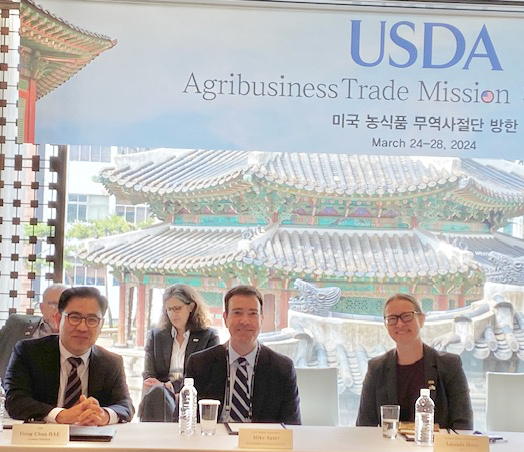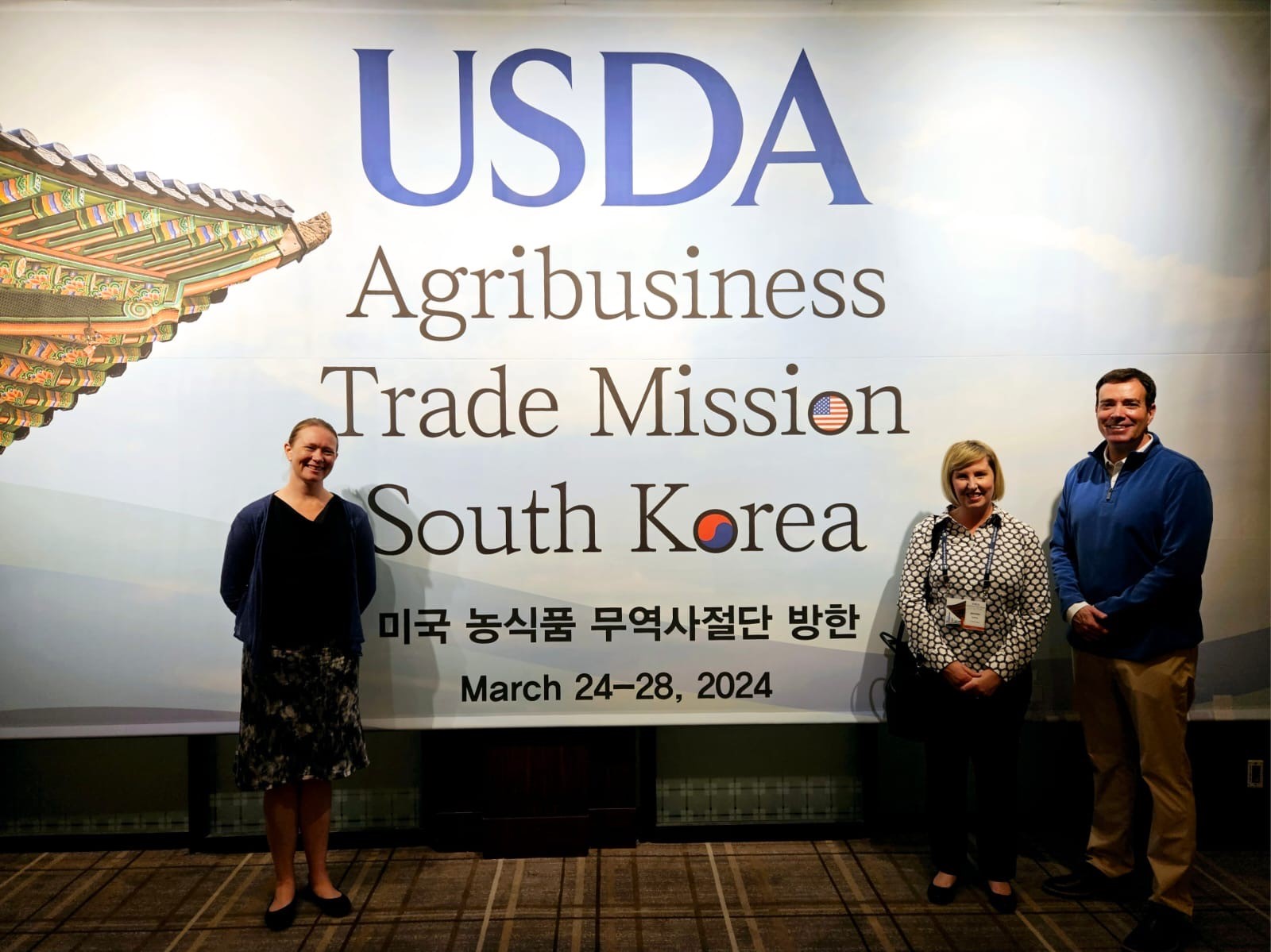USW’s History in South Korea Highlighted During USDA Agribusiness Trade Mission

USW South Korea Country Director Dongchan “Channy” Bae presents a three-minute briefing on USW’s 50 years of work in South Korea. Bae was participating in a USDA’s Agribusiness Trade Mission led by Under Secretary for Trade and Foreign Agricultural Affairs Alexis Taylor.
Given three minutes to summarize 50 years of work, U.S. Wheat Associates (USW) South Korea Country Director Dongchan “Channy” Bae effectively shared how building partnerships, promoting quality and educating customers has helped USW develop one of the top and most promising markets for U.S. wheat exports.
He could have spoken for hours on USW’s history in Korea.
But Bae was participating in a lightning round-style discussion sparked by USDA Under Secretary for Trade and Foreign Agricultural Affairs Alexis Taylor, who led a USDA Agribusiness Trade Mission to South Korea March 24-28. A series of meetings in Seoul included one roundtable session where Taylor asked USW and other U.S. agricultural groups on the trip to describe efforts, challenges and successes in the Korean market.
A Quick by Thorough Update
“Each organization was given three minutes to update Undersecretary Taylor on the market and Channy did an outstanding job condensing all of USW’s work in Korea with a very a clear and concise message,” said USW Vice President of Overseas Operations Mike Spier, who joined USW Vice President of Planning Jennifer Sydney in representing USW on the trade mission. Oregon Wheat Commission CEO Amanda Hoey was also on the trip representing the U.S. wheat industry.
Bae explained to Taylor that South Korea is the fifth largest importer of U.S. wheat, accounting for 1.2 million metric tons (MT) in the most recent marketing year. The U.S. has a 48% market share, followed by Australian (44%), and Canadian (7%.) With current marketing year commercial sales to Korea running 12% ahead of last years pace, the U.S. share could reach 50% in 2024.
Years of Work in the Market
Knowing the market and adapting to changes has been key, he added.
“Currently, South Korea faces many challenges such as low birth rates, economic slowdown, and geopolitical tensions,” Bae said. “Nevertheless, wheat flour consumption is gradually increasing, replacing the country’s traditional staple, rice. Furthermore, Korean food companies are expanding to the overseas market by utilizing the popularity of K-Pop, and K-drama. Especially, exports of instant noodles and frozen dough for bakeries are on the rise.”

Left to right: Channy Bae, USW Vice President of Overseas Operations Mike Spier and Oregon Wheat Commission CEO Amanda Hoey.
Partners Helping Partners
USW celebrated its 50th anniversary of its office in Seoul last May.
“We take pride in our contributions to the development of Korea’s flour milling, baking, and noodle industries,” Bae told Taylor. “To promote high-quality U.S. wheat and a transparent export system to Korean millers, we organize various educational programs and seminars on purchasing, quality assurance, and production techniques. Additionally, we support the research programs for noodle and baking companies through professional institutions in the United States. We believe all these activities enhance the value of U.S. wheat and strengthen farmers’ profitability.”
Korean Influence Important
Hoey pointed out that Bae also shared with Taylor the impact of Korea’s influence in other markets in Asia.
“He explained how opportunities are presented because of the popularity of Korean trends in other countries,” said Hoey. “Food trends especially are shaping and growing demand for U.S. wheat in markets that follow trends in Korea. That was a message also shared by USDA staff after the roundtable.”
Bae ended his three-minute briefing by thanking USDA’s Foreign Agricultural Service (FAS) for its support of USW’s work in Korea.
Ag Groups Learn From Each Other
Along with USW, USDA’s agribusiness trade mission to South Korea included a delegation comprised of 47 other agribusiness and farm organizations, and five state departments of agriculture. The trade mission included bilateral meetings with Korean industry and government officials, along with a look at retail promotions in Seoul featuring U.S. products.
“The interaction with the other agriculture groups, especially groups that are USDA cooperators like U.S. Wheat Associates, was valuable,” said Sydney. “We see some of these other groups from time to time, but getting to hear their strategies or the issues they face in the same markets we work in was very interesting.”


